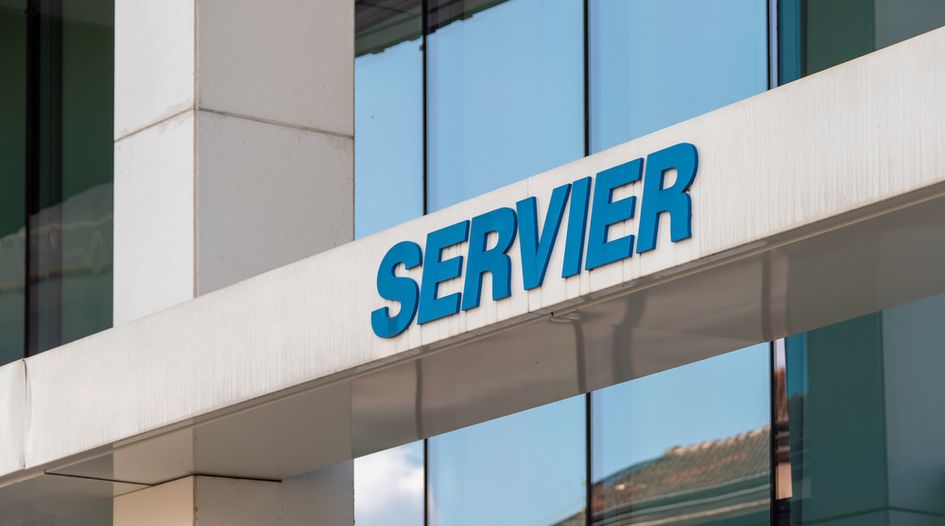The EU’s top court has dismissed the bulk of challenges to fines imposed on Servier and several generic drug companies for agreeing to delay sales of blood pressure medication – but referred certain issues back to the EU General Court.
The European Court of Justice today upheld the majority of the European Commission’s findings relating to its pay-for-delay decisions against drugmakers Servier, Lupin, Niche Generics, Unichem Laboratories, Matrix, Teva, Krka and Biogaran – a Servier subsidiary – in 2014.
In 2014, the European Commission found that Servier was dominant in the perindopril-molecule market, and that the settlements infringed EU law because they prevented potential competitors entering that market. It fined Servier €331 million, and the rival drugmakers a combined €97 million.
The top court today partially overturned an earlier EU General Court’s ruling that slashed the penalty against Servier by more than €100 million after finding that the agency incorrectly defined the relevant market in claiming an abuse of dominance.
The ECJ said the lower court’s findings on this matter were contradictory and disregarded the principles it had set out in its judgment on defining a relevant product market in the pharmaceutical sector.
For instance, it had concluded that the “relative inelasticity” of perindopril prices was of little relevance to determining the relevant market, despite also correctly stating that price-related factors are relevant in the assessment of competitive constraints, the court said.
The ECJ therefore referred the case back to the lower court to rule on the abuse of dominance infringement and the applicable fine.
The ECJ also set aside the lower court’s judgment overturning the €10 million fine imposed on pharmaceutical company Krka. The EU General Court had concluded that its settlement agreement with Servier did not foreclose its rival from operating in the market and did not qualify as a restriction of competition either by object or by effect.
“[T]here is no doubt that the restriction of competition found by the Commission was sufficiently harmful to be classified as a restriction of competition by object,” the ECJ said, rejecting Krka’s arguments.
It dismissed Servier and Krka’s appeals against the Commission’s decision on two out of three agreements between the companies. As the EU General Court did not rule on a third arrangement, it referred the case back to the lower court to conclude whether it constituted a by object restriction of competition.
The ECJ also dismissed Lupin, Niche Generics, Unichem Laboratories, Matrix, Teva and Biogaran’s appeals, confirming the EU General Court’s earlier findings that their agreements with Servier or Biogaran had restricted competition and the companies were liable for the fines imposed by the agency.
However it reduced the penalty against Servier relating to its agreement with Lupin from €37.1 million to €34.7 million, as the infringement period was shorter than the commission initially concluded.
Peter Rowland, of counsel at Herbert Smith Freehills in Brussels, said that the “various scenarios covered provide further useful guidance to practitioners advising on whether patent settlement agreements are legitimate or ‘pay-for-delay’ agreements.”
He noted that the court upholding a “narrow” product market – in this case, molecule level – will be particularly relevant to pharmaceutical companies and their legal advisors, “as narrowing markets increases the risk of a company being found to be dominant.”
Although the focus of the agency’s probes in the pharmaceutical sector has “moved on” – for instance to disparagement cases – the analysis in today’s judgments remains welcome guidance, as companies are still settling patent disputes, he noted.
More broadly, he added that today’s judgments follow a “pattern” that has seen the ECJ side with the commission while the EU General Court has been “more willing” to overturn the agency’s decisions.
A commission spokesperson said that the agency “takes note” of the judgments. By upholding its appeal, the ECJ “confirmed most of the Commission’s findings” in its infringement decision in 2014, they added.
A Krka spokesperson said: “We have to analyse the ruling first, before we provide comments.”
Servier, Lupin, Niche Generics, Unichem Laboratories, Matrix, Teva and Biogaran did not respond to requests for comment.
Counsel to Servier
Dethomas Peltier Juvigny & Associés
Partner Thibault Reymond in Paris and former partner Olivier de Juvigny, now magistrate at French Ministry of Justice
White & Case
Partner James Killick in Brussels and former partner Jérémie Jourdan, now Schibsted
Sidley Austin
Partner Anne Robert in Brussels
Counsel to the European Commission
European Commission Legal Service
Agents Fernando Castillo de la Torre, Flor Castilla Contreras, Josephine Norris and Christian Vollrath in Brussels

